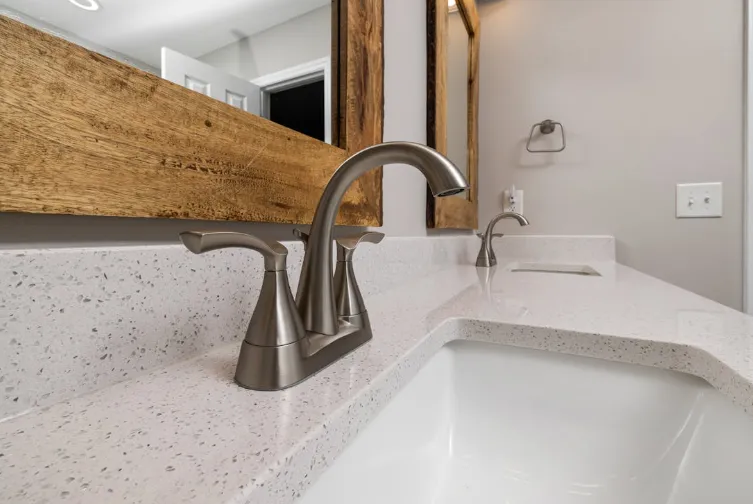The Importance of Regular Plumbing and Faucet Maintenance

Contents
Introduction
In Singapore, maintaining your plumbing and faucets isn’t just about fixing leaks, it’s about protecting your home or office from potential disasters and keeping your water bills in check. Picture a scenario where you no longer fret about sudden bathroom floods or mysterious ceiling stains sounds like a dream, doesn’t it? Well, with proper maintenance, it’s entirely possible! Our upcoming blog will be your go-to guide for all things plumbing in Singapore, offering insider tips on leak detection and self-help fixes to ensure smooth sailing for your water infrastructure. Get ready to bid farewell to plumbing woes and embrace hassle-free living in the Lion City!
Preventing Costly Repairs
Discussion on potential damage from neglected plumbing
Neglected plumbing can cause severe structural damage, including water damage to walls, floors, and foundations, leading to mold growth and wood rot. This weakens the building and poses health risks such as respiratory issues. Regular faucet installation and maintenance are much more reliable solutions for preventing these issues, ensuring efficient water usage, reducing higher water bills, and avoiding costly repairs from significant flooding and property damage.
Financial implications of repairs versus maintenance
Proactive maintenance, though requiring consistent investment, prevents major breakdowns and extends asset lifespan, leading to lower long-term costs. Conversely, unexpected repairs are often more expensive and cause productivity losses, making them less cost-effective than regular maintenance.
Ensuring Water Efficiency
Impact of leaks and inefficiencies on water bills
Water leaks and inefficiencies can significantly increase household water bills, with even small leaks wasting hundreds of gallons monthly and leading to substantial financial loss over time. Outdated appliances and overwatering further exacerbate this issue by driving up overall consumption. Addressing leaks promptly and adopting water-efficient practices are essential to reducing costs and promoting sustainable water use.
Environmental consequences of wasted water
Wasting water has significant environmental consequences, including the depletion of vital freshwater resources and habitat destruction in rivers, lakes, and wetlands. This depletion disrupts local ecosystems and threatens countless species. Additionally, the energy-intensive process of treating and pumping water increases carbon emissions, contributing to climate change. In agricultural regions, overuse of water leads to soil degradation and reduced land fertility, jeopardizing food security and environmental health.
Strategies for maintaining water-efficient plumbing and faucets
Maintaining water-efficient plumbing and faucets involves regular leak checks, installing low-flow fixtures, and upgrading to WaterSense-labeled products. Cleaning aerators and showerheads to prevent mineral buildup, and insulating pipes helps ensure optimal water flow and temperature efficiency. Additionally, educating household members on water conservation practices, like turning off taps while brushing their teeth and taking shorter showers, reinforces these efforts.
Preserving Health and Safety
Risks associated with contaminated water
Contaminated water harbors dangerous pathogens and pollutants, posing a direct threat to human health and the environment. Waterborne diseases like cholera and dysentery can spread rapidly, especially in communities lacking proper sanitation. Efforts to mitigate these risks must prioritize water treatment, pollution prevention, and widespread education on safe water practices to safeguard public health and preserve ecosystems.
Importance of regular inspections for health and safety
Regular inspections of faucets and plumbing systems are essential for maintaining health and safety standards and preventing issues, like leaks and contamination. Neglecting these inspections can lead to costly repairs, water wastage, and potential health hazards, emphasizing their importance in ensuring a safe and hygienic environment.
Tips for maintaining clean and safe plumbing systems
Keeping plumbing systems clean and safe is essential for maintaining a healthy home environment or business setting. Regular inspections to identify leaks or unusual noises, and proactive measures such as preventing debris from entering drains are vital. Additionally, knowing the location of emergency shut-off valves can swiftly mitigate potential disasters like burst pipes.
Prolonging Lifespan of Fixtures
Benefits of regular maintenance in extending the lifespan
Regular maintenance is essential for extending the lifespan of equipment by enhancing efficiency, preventing breakdowns, addressing minor issues, and promoting safety.
Tips for prolonging the durability of faucets and pipes
Regularly check for leaks, avoid harsh chemicals, insulate pipes in winter, and be mindful of water pressure to prolong faucet and pipe durability.
Conclusion
Keeping your plumbing and faucets in top shape isn’t just about preventing leaks; it’s about taking care of your home and family. Think of it like giving your house a little love and attention regularly to keep everything running smoothly. So, let’s make it a habit to check those pipes, give the faucets a good clean, and keep an eye out for any signs of trouble. By doing these simple tasks, we’re not just saving money on repairs; we’re also ensuring our homes stay safe and comfortable for everyone who lives in them. Let’s make maintenance a priority and show our homes the TLC they deserve.



